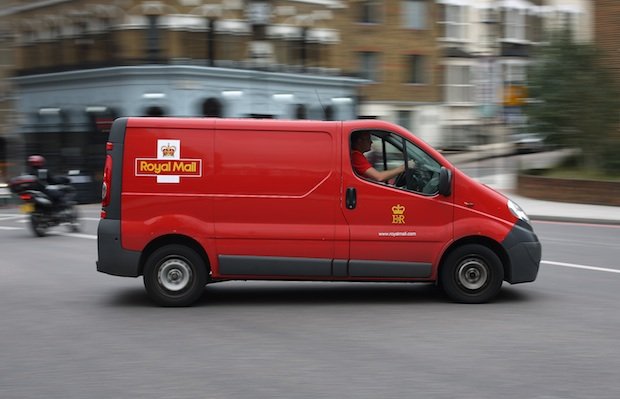Bankers explain difficulties of outside-in valuations as their Royal Mail figures vastly outstrip £3.3bn sell-off price

Some interesting stuff is coming out of the BIS select committee, where a panel of MPs is grilling the invement banks involved in the sell-off of Royal Mail. Details from the banks not selected to run the flotation have been garnered.
A quick reminder, because the bankers have not made it clear: Some of the figures below (and definitely JP Morgan's) are enterprise values. An enterprise value is a measure of a company's value, calculated as market cap plus debt. The Royal Mail has £1bn of debt, which may or may not have been taken into account by the banks:
JP Morgan's John Mayne says that it valued Royal Mail at between £6.8bn and £8.5bn
Citigroup's Ben Storey says it said valued Royal Mail at between £5.9bn and £6.5bn
Deutsche Bank's James Agnew says it offered a valuation of £5.5bn and £6bn
Panmure's initial valuation was between £4bn and £5bn
Royal Mail was sold at a valuation of £3.3bn, but is currently worth around £5.4bn.
This morning, UBS downgraded its recommendation on Royal Mail to "sell". The bank's James Robertson says that Royal Mail had no track record of profitability, and faced several risks. Others being quizzed said that the threat of strike action, along with the risk of US default, were factors in keeping the price range down.
Shadow business secretary Chuka Ummuna tweeted that UBS told the committee that the Royal Mail IPO would, ideally, have been done after the employee pay and pensions issues were resolved.
The committee asked: "Who made the final decision on the 330p price that Royal Mail was sold at?"
Goldman's Richard Cormack said: "The Secretary of State and the government made the final decision." To the question: "Was it consistent with advise from UBS and Goldman?", he replied "yes".
MPs were keen to find why UBS and Goldman Sachs thought the company was worth less than Citi, JP Morgan and Deutsche estimated.
Goldman did not accept the assertion that the lender undervalued Royal Mail. The valuation at IPO should, he said, be divorced from the value at the time of the pitching process. All the banks, he added, were having to do an outside-in valuation.
Goldman Sachs' initial pitch for Royal Mail valued it at between £3bn and £3.7bn. Later, it went with £3.25bn to £3.5bn, with a maximum of £3.75bn.
Citi's Ben Storey explained to the committee that valuing a company from the outside can be difficult, owing to the number of assumptions that have to be made. Preliminary valuations, he agreed, can't really be compared to the final floatation value. Citi's expectation for Royal Mail's dividend payment was above what actually proved the case.
The discretionary payment of £4.2m that Goldman and UBS could receive was brought up: "Do you think taxpayers will welcome you receiving it with open arms?" UBS's Robertson replied: "I think that's for the secretary of state to decide – it's in his gift."